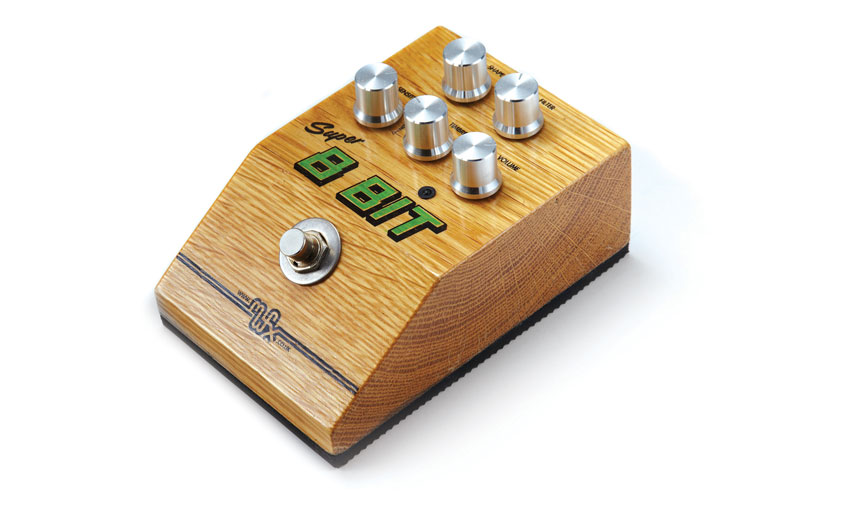MusicRadar Verdict
The pedal's construction is a little rough in places, but the madcap set of sounds really do bring to mind the great videogames of old. If the term 'chiptune' means anything to you, you're bound to love it.
Pros
- +
Great videogames tones. Idiosyncratic looks.
Cons
- -
Takes patience to get the best from it. Build quality could be better.
MusicRadar's got your back
Just when you think you know what to expect from a pedal, something like the MWFX Super 8 Bit comes along, with looks reminiscent of an old Atari 2600 and tones to match. Described as a "stepped- pitch falling fuzz" by MWFX, the Super 8 Bit is all blips and glitches, mixing a thick synthy sound with an intense fuzz effect.
It isn't the easiest pedal to harness, requiring patience and experimentation to get the most from it. After setting the volume, adjust the sensitivity control, starting off at zero and stopping just before the pedal triggers by itself.
From there, the timbre control changes the frequency response, which limits the pitch at lower levels for an octave/fifth effect, but lets the full range of the guitar through at higher levels. It's also very sensitive to pick attack, so a more aggressive approach is less likely to trigger the octave effect.
Filter and shape let you fine-tune further, with the former acting as a high/low-pass filter, and the latter warping one side of the square wave into a saw shape.
Want all the hottest music and gear news, reviews, deals, features and more, direct to your inbox? Sign up here.
